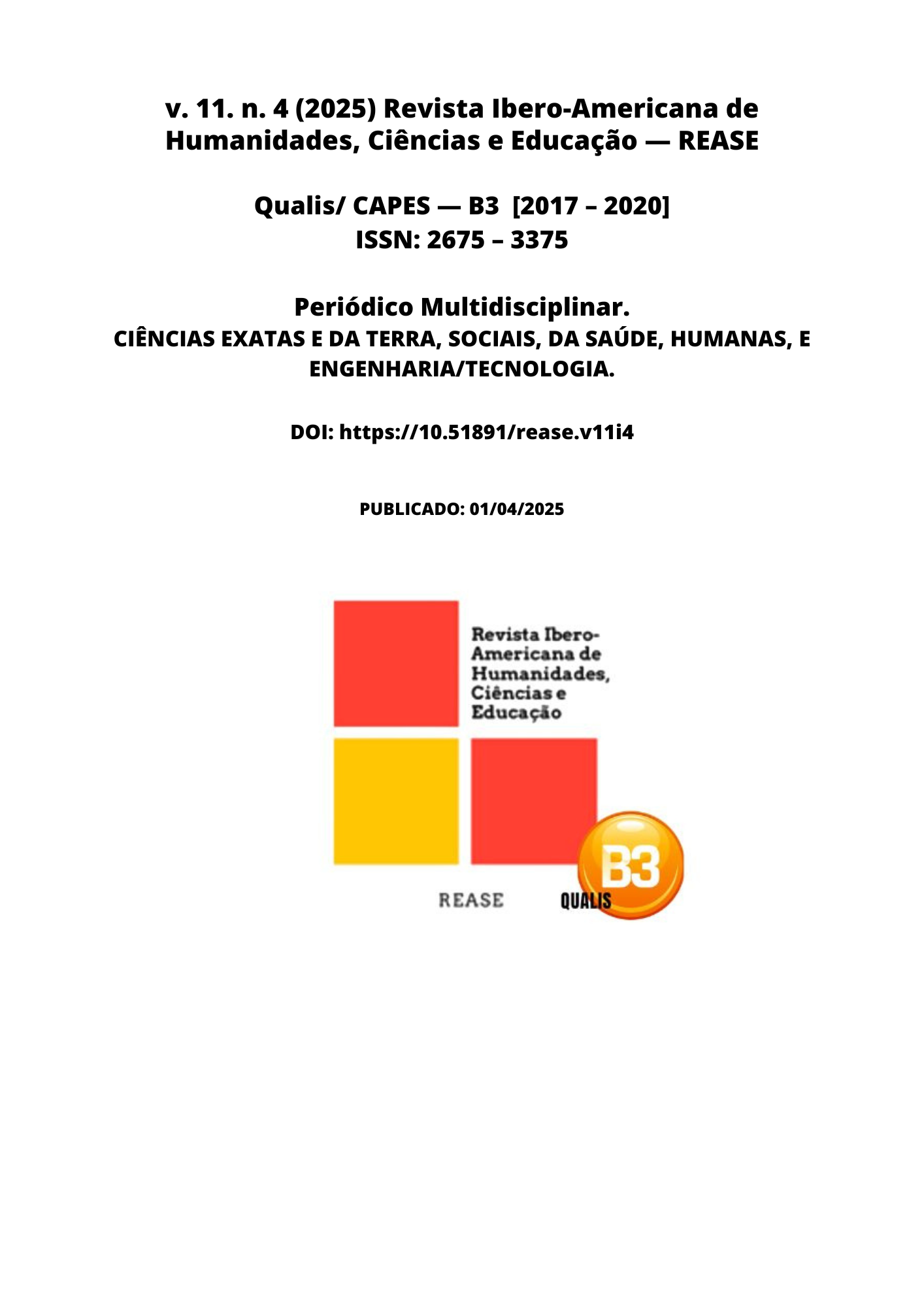CONTRIBUTIONS OF APPLIED BEHAVIOR ANALYSIS (ABA) IN EARLY CHILDHOOD EDUCATION FOR CHILDREN WITH ASD: AN INTEGRATIVE REVIEW
DOI:
https://doi.org/10.51891/rease.v11i4.18595Keywords:
Análise do Comportamento Aplicada. Autismo. Educação infantil.Abstract
This article investigated the use of Applied Behavior Analysis (ABA) approaches by early childhood education teachers in managing children with Autism Spectrum Disorder (ASD), focusing on the development of skills in neurodiverse students. Early childhood education is an essential stage, as it promotes social interaction and stimulates the overall development of children. To achieve the proposed objectives, an integrative review was conducted with articles published between 2019 and 2024. The research was selected from the Virtual Health Library (VHL) platforms, covering the Medline, Latin American and Caribbean Literature in Health Sciences (Lilacs), Scientific Electronic Library Online (SciELO), and ScienceDirect databases, totaling seven studies analyzed. The results indicate that pedagogical practices based on ABA show positive effects. Through observation techniques and behavior recording, teachers are able to design more precise and structured interventions, favoring the improvement of social, cognitive, and communicative skills of children with ASD. Additionally, a reduction in disruptive behaviors was observed. It is concluded that the use of ABA in early childhood education benefits not only autistic students but also contributes to a more inclusive and integrated environment, promoting equitable and effective education.
Downloads
Downloads
Published
How to Cite
Issue
Section
Categories
License
Atribuição CC BY

